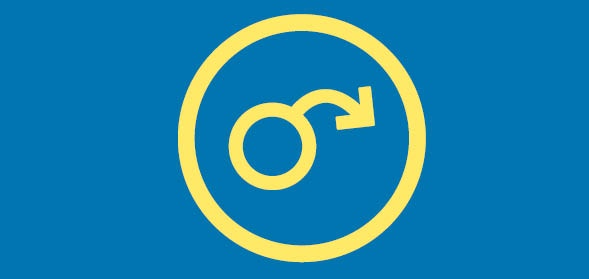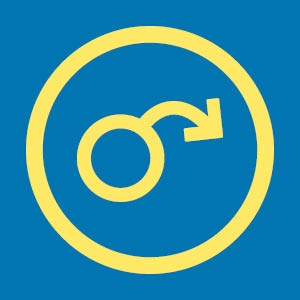
Erectile dysfunction can impact your sexual health and overall wellbeing, but can it affect fertility too?
Erectile dysfunction vs. infertility
Erectile dysfunction (ED) is the inability to achieve and maintain an erection for pleasing sexual penetration. Infertility is the inability to achieve pregnancy after regular unprotected sex for at least a year. They're two different reproductive health issues.
Problems with getting and maintaining an erection doesn't necessarily mean you're incapable of impregnating your partner or that you're infertile. You may be producing perfectly good sperm, but have trouble sustaining an erection. This is erectile dysfunction. With infertility, you may have no issue with achieving an erection at all, but your sperm quality is low.
Where the two overlap
With erection problems, you're unable to deliver sperm during intercourse for conception to occur. Erectile dysfunction can interrupt this process or prevent intercourse altogether. Therefore, erectile dysfunction can lead to infertility. As such, erectile dysfunction and infertility are confused and used interchangeably.
Still, they are distinctly different, and having the one need not mean you have the other.
Causes of ED and infertility
ED
- Damage to the blood vessels, nerves and surrounding tissues of the penis – often a result of an underlying condition like diabetes, obesity, high cholesterol, high blood pressure, multiple sclerosis or atherosclerosis.
- Injuries that affect the pelvic area or spinal cord.
- Substance abuse.
- Low testosterone levels.
- Certain medications.
- Ageing.
- Depression.
- Anxiety and stress.
- Low self-esteem.
- In most cases, a combination of the above factors can lead to erectile dysfunction.
Infertility
- Blockages in sperm-carrying tubes caused by infection, a vasectomy or prostate-related conditions.
- Trauma and torsion (twisting of the testicle cord) can permanently damage sperm production. Mumps can also affect fertility, but only if it causes orchitis (inflammation of the testicles). Cryptochidism (undescended testicles) is another common cause of failure of sperm production.
- Varicocele, which describes the abnormal dilation of the testicular veins in the scrotum.
- Disorders of sperm count, movement and shape.
- Genetic disorders can affect the development of the testicles, and disrupt cell divsion and sperm production.
- Problems with erection and ejaculation like erectile dysfunction, premature ejaculation or failure to ejaculate.
- Hormonal problems like testosterone deficiency or hyperprolactinaemia (overproduction of the hormone prolactin).
- General medical disorders may reduce fertility, e.g. diabetes, high blood pressure, coronary artery disease, neurological disorders, kidney disease, cancer, and stress.
- Some prescribed medications and recreational drugs can reduce fertility.
- Increasing environmental pollution and radiation damage can lower sperm count.
Treatment for ED and infertility
ED
- Impotence drugs: these work by increasing blood flow to the penis in order to get and keep an erection for sex. Sildenafil, Tadalafil and Verdenafil are examples of such medicines.
- Hormone therapy: testosterone, bromocriptine, and cabergoline are hormonal treatments that may help with erectile dysfunction.
- Vacuum constriction device: also called the penis pump; this device is used to facilitate getting and maintaining an erection.
- Penile prostheses: also known as penis implants, this offers a permanent solution to erectile dysfunction.
- Vascular reconstructive surgery: this can improve blood flow to the penis, which can improve erections.
Infertility
Your doctor may suggest that you look to assisted reproductive technologies (ARTs). ARTs offer powerful new infertility options to give sperm an artificial boost to get into an egg. It involves collecting sperm (either from ejaculated semen or by a needle from the testicle), and then processing and introducing them to eggs via:
- Intrauterine insemination: sperm are injected directly up into the uterus at the time of ovulation.
- In-vitro fertilisation: sperm are combined with multiple eggs collected from the woman. Fertilised eggs are then placed in the uterus.
- Intracytoplasmic sperm injection: a single sperm is injected through a tiny needle into an egg. The fertilised egg is implanted in the uterus.
ARTs don't cure or treat the cause of infertility. They merely help couples achieve pregnancy and make conception possible, even for men with very low or abnormal sperm.
Good to know
- A balanced diet, exercise, healthy body weight, quitting smoking, limiting your alcohol intake, and avoiding recreational drugs can all go a long way in preventing erectile dysfunction or infertility.
- Make sure you manage existing medical conditions.
- Reduce the chances of harming your sperm by avoiding tight-fitting underwear and clothing. Heat stress can affect the production and quality of sperm.
- Wear protective clothing and follow all occupational health and safety guidelines, if you work in an occupation that may affect your fertility.
- Avoid exposure to any possibly harmful chemicals, especially if you're trying to conceive.





 Publications
Publications
 Partners
Partners











